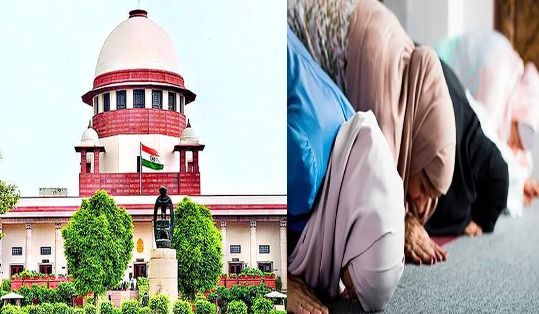
The All-India Muslim Personal Law Board (AIMPLB) told the Supreme Court on Thursday that a Muslim woman is free to enter a mosque to offer Namaz (prayers).
The AIMPLB stated in an affidavit filed through Advocate MR Shamshad that women are permitted to enter mosques to offer Namaz.
“A Muslim woman is permitted to enter a Masjid (Mosque) for prayer. “It is her choice to exercise her right to use the facilities available for prayers in a Masjid,” the affidavit stated.
The response was filed in response to a PIL to allow Muslim women to enter mosques.
The AIMPLB stated in its counter-affidavit that religious practices in places of worship such as mosques are purely private actions governed by Muttawalis and mosques.
Therefore, the Court or AIMPLB could not consider making detailed arrangements in such a religious setting, it was submitted.
The affidavit stated, “The Answering Respondent, and for that matter this Hon’ble Court, cannot enter into the arena of detailed arrangements of a religious place, which is completely privately managed entity for religious practices of believers in religion.”
While so, the AIMPLB emphasised that the issues raised in the petition concerned not only the management of a religious place, but also the regulation of activities associated with a religious place.
Nonetheless, AIMPLB went on to explain the relevant Islamic practises, claiming that while Islam does not require Muslim women to pray five times a day or offer Friday Namaz in congregation, they are permitted to pray in the mosque.
In fact, they have the option of offering prayers at a mosque or at their home. The response detailed hadiths in support to this submission.
It was also submitted that there is no religious text that allows for the free intermingling of genders in any Masjid. In response to the petitioner’s submissions on this aspect as misleading, the AIMPLB stated that arrangements have been made in Mecca and Medina to provide separate spaces for men and women during prayer.
According to the affidavit, the etiquettes of prayer, particularly with regard to no free-intermingling of men and women, are adhered to willingly, strictly, and sincerely by all worshippers.
The affidavit further added that certain ritual practices in Mecca, such as tawaf, can only be performed in a specific location. As a result, such practice is carried out in the same location by both men and women. However, the AIMPLB asserted that there is no “free” inter-mixing of the sexes during the ceremony. It was submitted that there are regulations in place to protect the sanctity of religious practices and sites.




